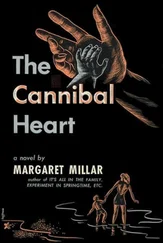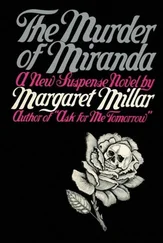“It’s different with you!” Della cried. “I got to send money home every month!”
“Don’t I got to live too? And am I scared?”
“I’ll give you both a month’s wages,” Andrew said quietly. “You may leave today if you like.”
Della only wept harder, and Annie had to do the talking for both of them. It was real kind of Dr. Morrow, really generous. Not that they couldn’t use the money. Not that they wanted to leave him in the lurch like this. But what future was there in housework?
“What future indeed?” Andrew said. “You may leave at once. I’ll make out your checks.”
They went upstairs and began to pack.
“Remember the emeralds?” Della said wistfully. “What emeralds?”
“You remember. The parcel.”
“Oh, hell,” Annie said and jerked open the closet door savagely. “We’re too old to play games like that. You’re eighteen and you talk like you were ten. Imagine us with an emerald.”
“Maybe — some day we’ll find something. Money or something. Or maybe radium. They say if you find just a little bit of radium you get to be a millionaire.”
“Will you shut up?” Annie banged her fist against a suitcase. “Will — you — shut — up?”
They hadn’t many clothes to pack. Within half an hour they were on Bloor Street waiting for a streetcar, their purses tight beneath their arms. They were still quarreling, but there was a softer look on Annie’s face and now and then she scanned the sidewalk and the gutter. Just in case.
Andrew stood at the door, watching, long after they Were out of sight. They were gone, the last remnants of the old life, and now he must begin his new one. But he felt curiously tired, reluctant to move from the door, as if any movement at all might bring on a new situation, a new series of complications that he would have to deal with. He wanted to see and hear nothing, to feel nothing, to be alone in a vacuum, like the mouse in the bell jar.
But the mouse was dead. In the first place he’s dead.
He heard someone coming down the stairs behind him. He had thought the house was empty, but now that he found it wasn’t, he was too weary to feel surprise. He turned slowly, knowing before he turned that it was Sands.
“I thought you were gone.” He had to drag the words out of his mouth.
“I’m leaving in a minute. Everyone else has gone. You’ll be alone.”
Alone. The word had a solemn sonorous sound that struck his ears with a thud.
“That’s what you wanted,” Sands said. “Isn’t it?”
“Yes.”
“Well, now you have it. You’ll be alone. And you’ll be lonely.”
“No, no, I... Martin... Martin will come back.”
“But he won’t stay. There’s nothing left for him here in this house.”
“He’ll stay if I ask him to, if I...”
“No, I don’t think so. You’ll be quite alone.”
Andrew closed his eyes. He saw the mist on the road ahead suddenly sweeping back toward him in gusts of fury.
“No... no...” he said, but how faint and suffocated his voice was, with the mist smothering his mouth. “I’m not... not afraid of being alone.”
“You’re afraid of the big fellow. You don’t want justice any more, you want mercy.”
Andrew bowed his head. Mercy. A terrible and piteous word that conjured up all the lost people wailing to their lost gods.
“I want nothing,” he said.
“But it’s too late now. You already have what you wanted. Don’t you recognize it?” Sands smiled. “This is it, Morrow.”
“Is this it?” He heard in his own voice the wailing of the lost men.
“The role of avenger is not for a little man like you. You dispensed justice to Lucille, now you must await it, in turn. You even asked the police to help you hunt her down. You couldn’t wait, could you?... You enjoyed seeing her suffer, didn’t you?”
“No... no... I’m sorry...”
“Too late, it’s all over.”
“And now?”
“Now, nothing.” He smiled again. “Doesn’t that amuse you? You’re like Lucille, after all. You have nothing left to live for.”
Andrew was propped up against the wall like a dummy waiting for someone to come along and move it into a new position.
Sands took out his watch, and in the silent house the ticking seemed extraordinarily important.
He put his watch back and began buttoning his overcoat. “I’ve got to leave now.”
“I am afraid,” Andrew said, but the door had already opened and closed again, softly, and he knew he must die alone.
Sands stepped out into the keen sparkling air.
He stood on the veranda for a moment and looked across the park where the phallic points of the pines were thrust toward the sun. He felt outside time, naked and frail and percipient. Evergreens and men were growing toward decay. Time was a mole moving under the roads of the city and imperceptibly buckling the asphalt. Time passed over his head in a thin gray rack of scudding clouds, as if the sky had fled away and its last remaining rags were blowing over the edge of the world.
![Маргарет Миллар The Iron Gates [= Taste of Fears] обложка книги](/books/433837/margaret-millar-the-iron-gates-taste-of-fears-cover.webp)

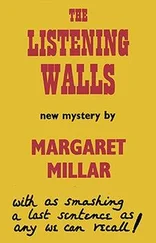
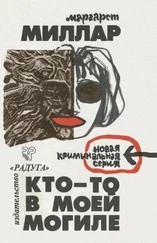
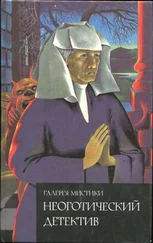
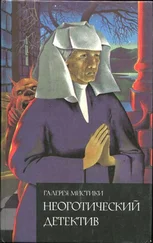

![Маргарет Миллар - Rose's Last Summer [= The Lively Corpse]](/books/384369/margaret-millar-rose-s-last-summer-the-lively-c-thumb.webp)
